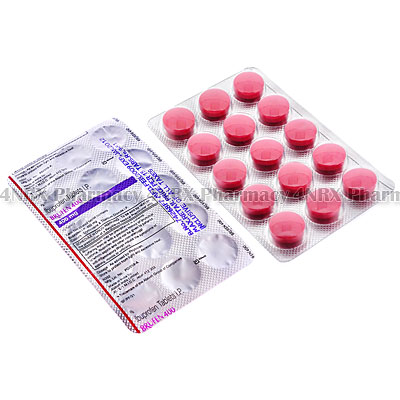 |
Home  Pain Pain  Brufen (Ibuprofen) Brufen (Ibuprofen) |
|
|||||||||
|
Brufen (Ibuprofen)
What is Brufen (Ibuprofen) used for? Brufen (Ibuprofen) is given to patients to help relieve pain caused by conditions such as arthritis, headaches, menstrual pain, muscular aches, cold, toothaches and also back pain. The active ingredient in this medication is a type of nonsteroidal anti-inflammatory drug which prevents the body from producing the substances responsible for causing inflammation, thereby helping to reduce inflammation, fever or pain. How should I use Brufen (Ibuprofen)? Brufen (Ibuprofen) tablets should be taken by mouth, exactly as prescribed by your physician. The dosage required depends on the condition being treated. Some patients treating arthritis may be told to take it 3 to 4 times per day, or else every 4 to 6 hours to treat pain. Some physicians may tell patients that they may take this medication every 4 to 6 hours as required for the treatment of fever or pain, but no more than 4 doses in any 24 hour period. However, it is essential that all patients consult their physician so that the correct dosage can be prescribed. What are the side effects of Brufen (Ibuprofen)? Some side effects of Brufen (Ibuprofen) include:
This drug may also cause other serious side effects. You should immediately consult your physician if you notice back pain, eye pain, mood changes or any other side effects. Please Note Taking NSAIDs can in some cases increase the risk of a heart attack. All patients should discuss the risks and benefits of taking this medication with their physician before they begin taking it. Strictly follow all instructions provided to you by your physician or pharmacist while using Brufen (Ibuprofen). Optimum and safe dosage can differ based on the patient and the condition being treated. As this medication may be unsafe for certain patients, it is essential you always inform your physician if you are pregnant or breastfeeding, as well as if you have any allergies, other illnesses, or ongoing health conditions, and if you are taking any other form of medication, supplements, or herbal products. Immediately seek emergency medical care if you have any allergic or hypersensitive reaction. Common signs of a reaction include hives, swelling, skin rashes, chest pains, as well as trouble breathing or swallowing. 




|
|||||||||||||||||